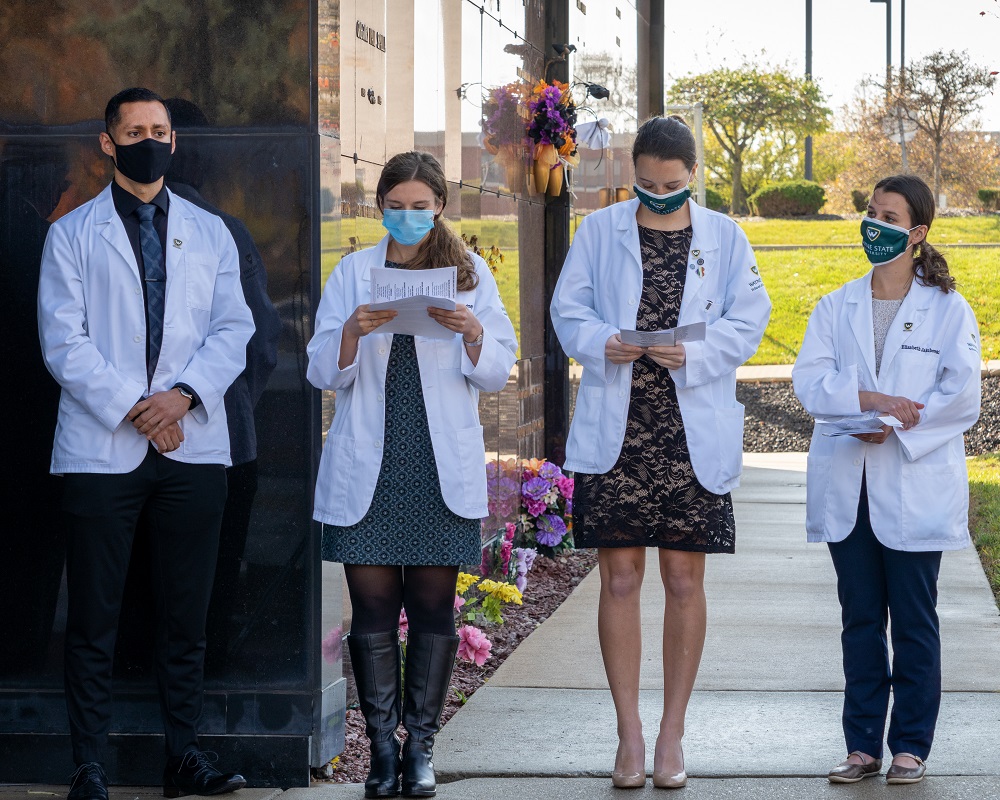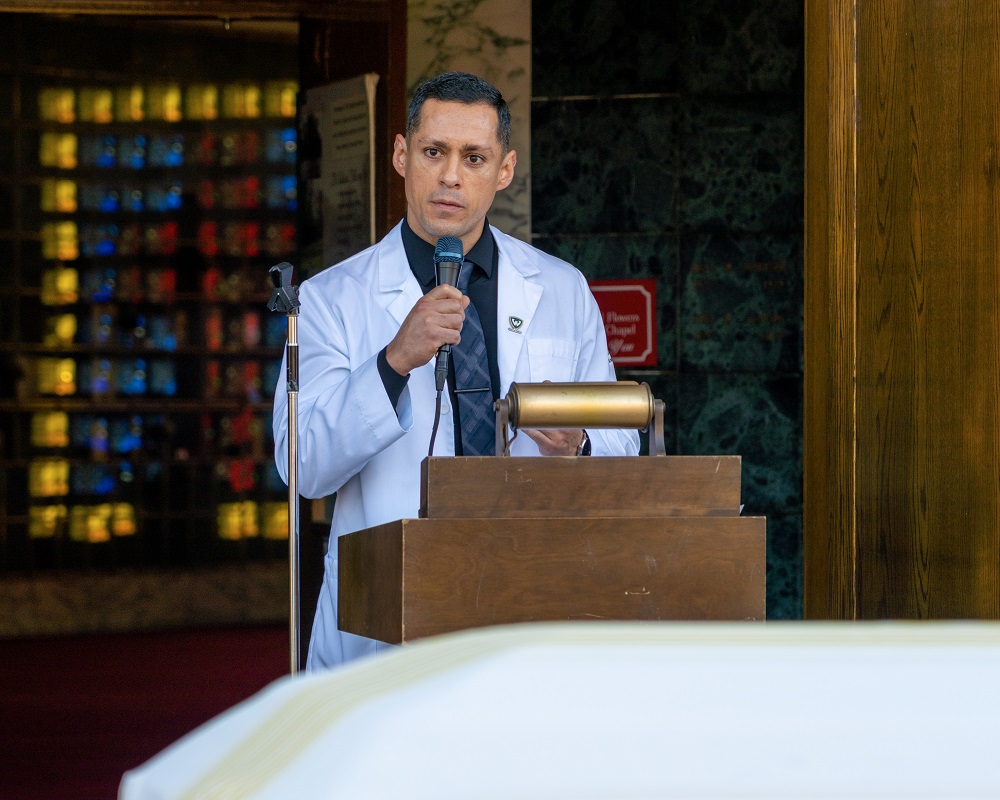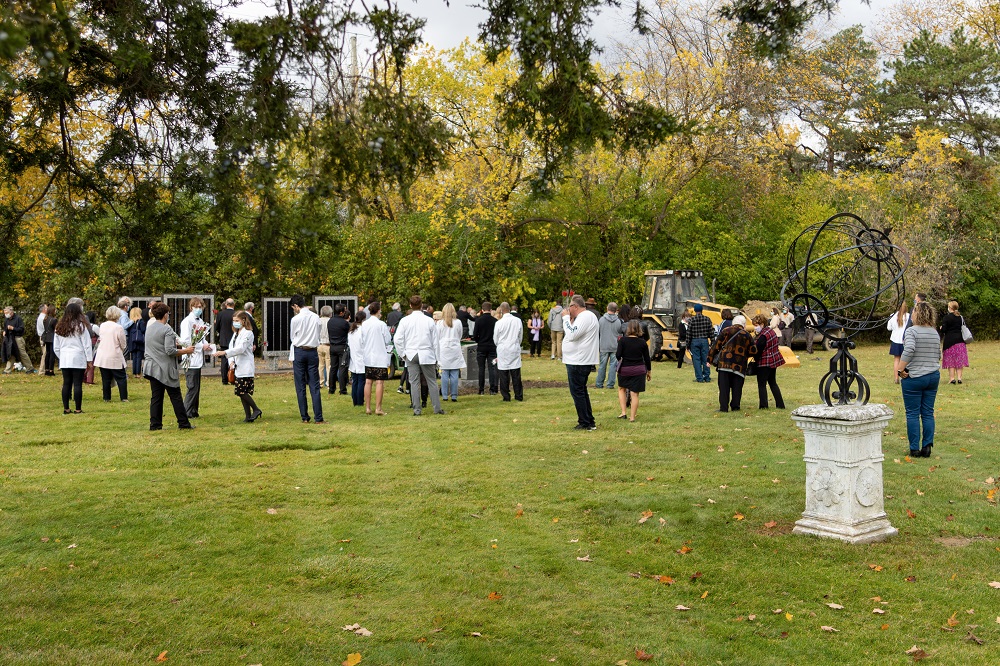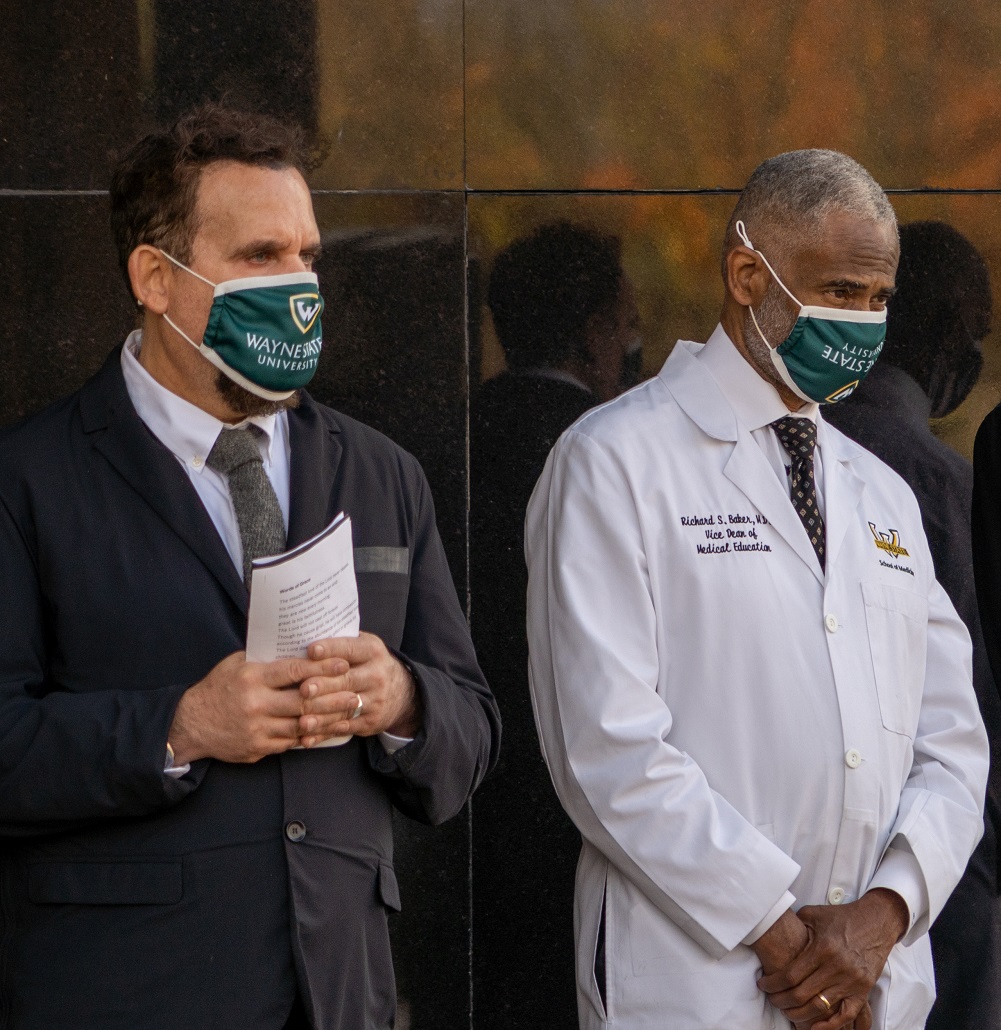
The use of whole body cadavers as an educational tool in the first year of medical school is a privilege at the Wayne State University School of Medicine.
While many schools have moved away from the whole-body cadaver as the central teaching tool for human anatomy in the first year of medical school, the Wayne State University School of Medicine gives all of its freshmen medical students a valuable lesson by introducing them to their “first patients” in the Gross Anatomy Lab.

“What sets us apart is that we still maintain a program of ‘full-cadaver dissection’ supplemented with prosections as well as electronic platforms for learning,” said Gross Anatomy Director and Professor of Ophthalmology, Visual and Anatomical Sciences Paul Walker, Ph.D. “Anatomy education has not been pushed to the side at our school, but rather has become the central element of their medical education experience. In addition to learning as much as possible about the human body, our program also emphasizes teamwork and professional development as physicians-in-training.”
The cadavers are donations to WSU’s Body Bequest Program. Each year, the School of Medicine closes out the academic year by remembering and celebrating the men and women who donated their bodies to the education of these physicians-in-training.

This year’s Body Bequest Program Memorial was held Oct. 23 in the expansive green space of Oakland Hills Memorial Gardens Cemetery in Novi, where a dedicated space for the program’s cremated remains exists. The minister-officiated service is held yearly, usually in May, to pay respects to the donors, and includes the interment of the cremated remains of 80 donors. Donor families, medical students and key faculty attended the service, organized by the Body Bequest Program’s Mortuary Supervisor Barbara Norgan, B.S., M.S.L. The name of each individual buried was read aloud by medical students before second-year medical student Hangil Lee played violin, and later, acoustic guitar.
Class of 2023 medical students Preston Hale and Rachel Cevigney spoke at the service of their gratitude for the bodies they met in their first weeks of medical school.

“They were and will always be extraordinary to us. They were and will always be our first patients. I think I speak for most of our classmates when I say, I will never forget them, what I learned from them, and how I aim to carry and earn the gift they gave me throughout my career,” Hale said.
Dean and Vice President of Health Affairs Mark Schweitzer, M.D., also spoke at the ceremony, weaving in stories of his own mother’s passing, his faith’s traditions, and the gratitude he has for those who donated their body to the school.
“They have done something to bless us all, that we can never repay them for. And I thank them, and I thank you,” he said. “It has affected people that they have never met, and will never meet in this world, but it is probably the best good deed that anyone can do. I’m truly sorry, but also truly thankful.”
Many schools have reduced time available for student dissection, instead employing cadaver material that has already been dissected, termed prosections, and have also transitioned to image-based virtual and electronic platforms that require little to no actual dissection, Dr. Walker said.
“Dissection of the human body is critical to the development of a physician. While one can learn the facts of anatomy from textbooks and pictures, the experience of dissection is transformative,” he said. “Your loved ones’ unselfish gesture has also contributed to the professional development of each student. One cannot leave the dissection room without feeling some compassion and humility. These are emotions that physicians-in-training must experience. Students also develop a spirit of teamwork during dissection. They learn to step forward when it’s time to lead, as well as step back while still contributing to the team’s success.”